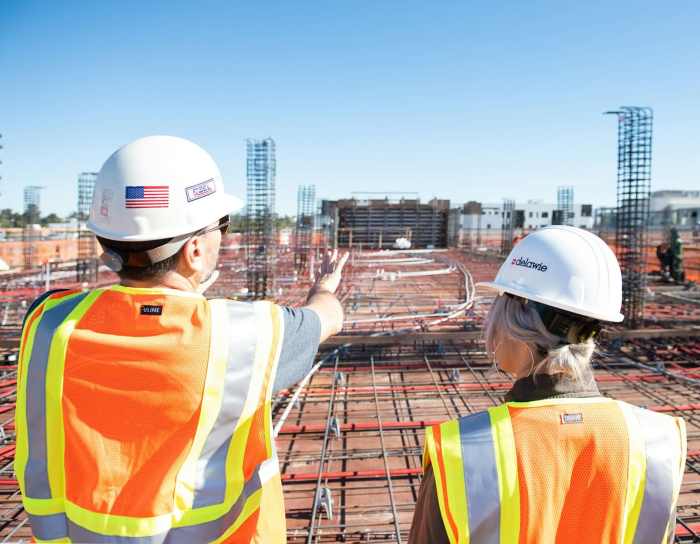Exploring General Contractors in the Area
General contractors in the area sets the stage for this informative exploration, offering readers a comprehensive look into the world of construction services. From residential to commercial projects, the realm of general contractors is vast and varied, promising a wealth of insights for those seeking to delve deeper into this industry.
As we venture further into the nuances of different types of general contractors, hiring practices, cost estimation, project management, and legal considerations, a clearer picture emerges of the essential role these professionals play in bringing construction projects to life.
Types of General Contractors
When it comes to general contractors in the area, there are different types available to cater to various needs and projects. These contractors typically specialize in either residential or commercial projects, each offering unique services tailored to their respective clients.Residential General Contractors:Residential general contractors focus on projects related to homes, apartments, or other residential properties.
They are skilled in handling renovations, remodels, and new construction projects for homeowners. These contractors work closely with clients to bring their vision to life and create a comfortable living space.Commercial General Contractors:On the other hand, commercial general contractors specialize in projects for businesses, offices, retail spaces, and other commercial properties.
They are experienced in handling large-scale construction projects, such as office buildings, warehouses, and shopping centers. Commercial contractors work with developers and business owners to ensure the project meets their specific requirements.Specialization Areas:Within the realm of general contracting, there are specific areas of specialization that contractors may focus on.
Some contractors excel in remodeling projects, where they transform existing spaces into updated and modernized areas. Others specialize in new construction, where they build structures from the ground up, following architectural plans and blueprints. Additionally, there are contractors who specialize in renovation projects, which involve restoring and enhancing existing properties.Overall, the type of general contractor you choose will depend on the scope and nature of your project, whether it be residential or commercial, and the specific services you require.
It's essential to select a contractor with the right expertise and experience to ensure a successful and satisfactory outcome for your construction project.
Hiring a General Contractor
Finding and selecting a reliable general contractor is crucial for the success of your construction project. Here is a step-by-step guide to help you through the process.
Checking Licenses, Insurance, and References
Before hiring a general contractor, it is essential to verify their licenses, insurance, and references to ensure they are qualified and reputable. Here are some key points to consider:
- Check the contractor's license: Make sure the contractor is licensed to work in your area and that their license is up to date. This ensures they have met the necessary requirements and have the expertise to handle your project.
- Verify insurance coverage: Ask for proof of insurance, including general liability and workers' compensation insurance. This protects you from liability in case of accidents or damages during the construction process.
- Ask for references: Request a list of references from the contractor and follow up with past clients to inquire about their experience. This will give you insight into the contractor's work quality and professionalism.
Negotiating Contracts and Agreements
Negotiating contracts and agreements with general contractors is an important step to ensure both parties are clear on expectations and responsibilities. Here are some tips for successful negotiations:
- Define project scope: Clearly Artikel the scope of work, timeline, and budget for the project to avoid any misunderstandings later on.
- Get multiple bids: Compare bids from different contractors to ensure you are getting a fair price for the services provided.
- Discuss payment terms: Establish a payment schedule that works for both parties and includes milestones to track progress.
- Include a dispute resolution clause: In case of disagreements or issues during the project, include a clause in the contract outlining how disputes will be resolved.
Cost Estimation and Budgeting

When it comes to working with general contractors, cost estimation and budgeting are crucial aspects of any project. Understanding how general contractors estimate costs, factors that can influence the budget, and effective budgeting strategies can help you plan and manage your construction project efficiently.
How General Contractors Estimate Costs
General contractors typically estimate costs for a project by considering various factors such as:
- The scope of work required
- The materials and labor needed
- Permits and licensing fees
- Equipment and machinery costs
- Overhead expenses
Factors Influencing the Budget
Several factors can influence the budget when working with general contractors:
- Changes in project scope or design
- Unforeseen issues or delays
- Market fluctuations in material prices
- Weather conditions affecting construction timelines
- Contractor expertise and reputation
Effective Budgeting Strategies
To effectively budget for a project with a general contractor, consider the following tips:
- Get multiple quotes from different contractors to compare prices
- Have a contingency fund for unexpected expenses
- Clearly define project scope and requirements to avoid scope creep
- Communicate openly with the contractor about your budget constraints
- Regularly review and track expenses to stay within budget
Project Management and Communication

Effective project management is crucial when working with general contractors to ensure that a construction project is completed successfully. Clear communication between clients and general contractors is key to avoiding misunderstandings and delays. Here are some tips on how to maintain a good working relationship with a general contractor throughout the project.
Typical Project Management Process
- Initial Planning: This phase involves discussing project goals, timelines, and budget with the general contractor.
- Procurement: General contractors source materials and subcontractors needed for the project.
- Execution: The actual construction work takes place, with the general contractor overseeing the process.
- Monitoring and Controlling: Regular progress updates and quality checks are done to ensure the project stays on track.
- Closure: Final inspections, client walkthroughs, and completion of any outstanding tasks mark the end of the project.
Importance of Clear Communication
- Prevents Misunderstandings: Clear communication helps avoid confusion about project requirements and expectations.
- Timely Problem-Solving: Effective communication enables quick resolution of issues that may arise during the project.
- Builds Trust: Open communication fosters trust between clients and general contractors, leading to a smoother working relationship.
Tips for Maintaining a Good Working Relationship
- Establish Expectations Early: Clearly Artikel project goals, timelines, and budget constraints from the start.
- Regular Updates: Stay in touch with the general contractor to receive progress reports and address any concerns promptly.
- Be Open to Feedback: Listen to the general contractor's suggestions and feedback to ensure a collaborative approach to the project.
- Respect Professional Boundaries: Allow the general contractor to manage the construction process while providing necessary input and feedback when needed.
- Celebrate Milestones: Acknowledge and celebrate project milestones to boost morale and maintain a positive working atmosphere.
Legal Considerations and Permits
When embarking on a construction project with a general contractor, it is crucial to be aware of the legal considerations and permits required for a smooth and successful execution. Ensuring compliance with regulations and having proper documentation in place can save time, money, and prevent potential legal issues down the line.
Permits and Regulatory Requirements
- Before starting any construction work, it is essential to obtain the necessary permits from the local authorities. These permits typically include building permits, zoning permits, and environmental permits.
- Compliance with building codes, safety regulations, and other legal requirements is crucial to avoid fines, delays, or even stop-work orders during the project.
- General contractors should be well-versed in local regulations and ensure that all necessary permits are secured before commencing work.
Importance of Written Contracts
Having a written contract with a general contractor is essential to protect both parties' interests and ensure clarity on project scope, timeline, costs, and responsibilities. A well-drafted contract can help prevent disputes and provide a legal remedy in case of breaches or misunderstandings.
Common Legal Issues and Resolution
- Disputes over change orders, delays, payment terms, or quality of work are common legal issues that may arise during a construction project.
- Effective communication and documentation are key to resolving legal issues promptly. Keeping detailed records of all communications, changes, and agreements can help prevent misunderstandings.
- If legal issues do arise, it is advisable to seek legal counsel to navigate the complexities of construction law and reach a fair resolution.
Wrap-Up
In conclusion, the realm of general contractors in the area is a dynamic and multifaceted landscape that demands attention to detail, clear communication, and strategic planning. By understanding the intricacies of working with general contractors, individuals can navigate construction projects with confidence and achieve successful outcomes.
Quick FAQs
What qualifications should I look for when hiring a general contractor?
Look for licenses, insurance coverage, and references to ensure reliability and quality workmanship.
How can I effectively communicate with my general contractor during a project?
Maintain open lines of communication, provide clear project expectations, and address any concerns promptly to foster a productive working relationship.
What are the common legal issues that may arise when working with general contractors?
Issues like contract disputes, payment problems, and project delays can occur, but having a written contract and understanding legal requirements can help mitigate these challenges.




